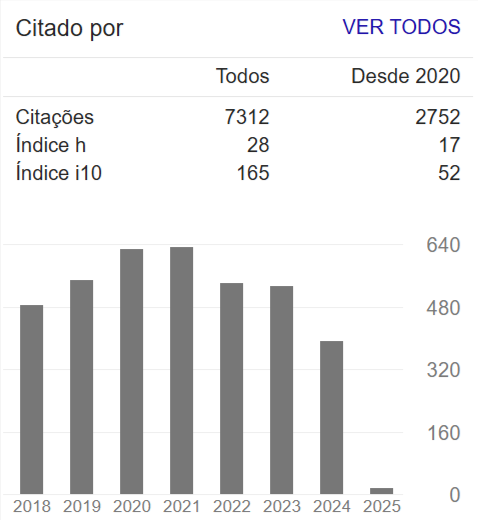Water quality of paralyzed wells in the municipality of Itapipoca, Ceará.
Abstract
The state of Ceará, due to its location and climate, has very specific characteristics that directly affect water availability in the region. The high solar radiation incident in the State underscores the need for integrated surface and groundwater management in the region. However, records made by the Mineral Resources Research Company (CPRM) indicate the existence of at least 89 unused wells in the municipality of Itapipoca / CE. However, no data are presented on the reasons that led to its destruction. Thus, given the need for access to water that predominates in the semiarid region, this paper presents a research on the main reasons that lead the wells in the region to a standstill and a study on their water quality, aiming to identify their possibilities of reactivation and use. To this end, we analyzed the records of wells drilled in the state, technical visits and laboratory analysis of samples collected in 8 wells. During the study it was identified that the main reasons for downtime are presented by the population are related to maintenance problems, low flow, clogging (accidental or deliberate) and water quality. Finally, it was concluded that although the samples analyzed do not meet the potability standards established by Consolidation Ordinance No. 05/2017, the use of technologies such as water desalination and alkalinization could reactivate them.

















